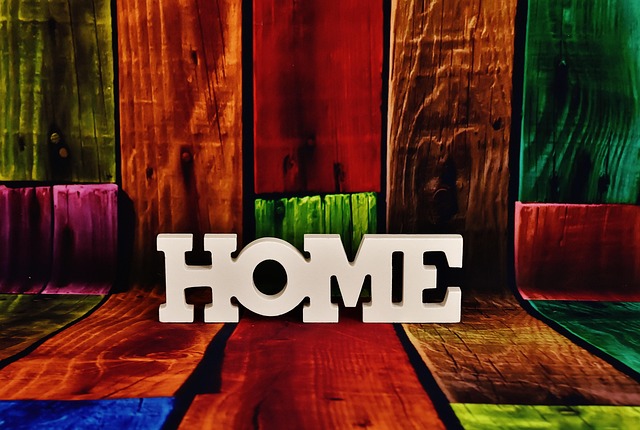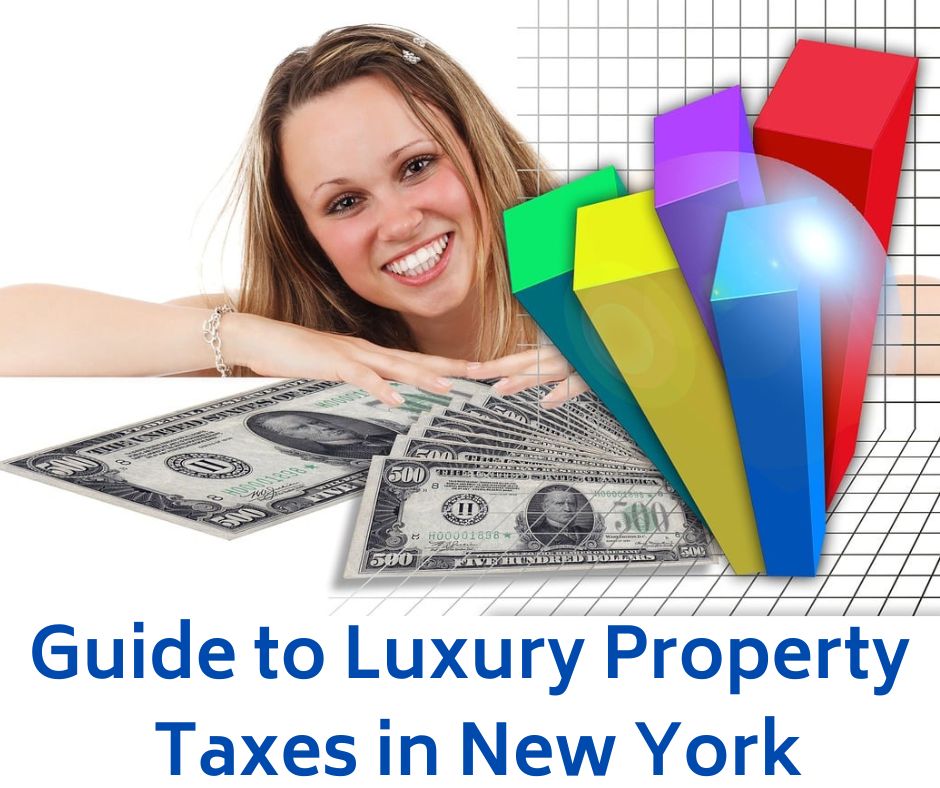Why Property Taxes Matter in New York Luxury Real Estate
New York, known for its opulence, high-end real estate, and prime locations, also comes with complex property tax laws that can significantly affect luxury homeowners. From Manhattan’s penthouses to sprawling estates in the Hamptons, understanding the nuances of property taxes in New York is critical for anyone investing in luxury real estate. In this guide, we will dive deep into how property taxes are assessed, calculated, and how luxury homeowners can manage their tax liabilities.
Chapter 1: Overview of New York Property Tax System
Property Tax Structure:
New York state has one of the most complex property tax systems in the country. The taxes are primarily based on the value of the property and are imposed at the local level. Each city, town, or county sets its own tax rate, leading to a wide variation in tax obligations across the state.
Assessed Value vs. Market Value:
Market Value: This is the price your property would sell for in the open market under typical conditions.
Assessed Value: New York assesses properties annually to determine their value for taxation purposes. The assessed value is typically a percentage of the market value.
In luxury real estate, market value plays a massive role in determining property taxes, and given the high value of luxury properties, the tax burden can be significant.
Tax Rates:
Property tax rates in New York vary dramatically depending on the municipality. For example, New York City has relatively low property tax rates but high assessed values, while some suburban counties have higher tax rates but lower property values.
Equalization Rates: In New York, equalization rates are used to ensure fairness across municipalities with different tax assessment practices.
Chapter 2: Property Taxes in Key Luxury Markets
Manhattan:
Manhattan’s luxury real estate market includes some of the most expensive homes in the world. From Park Avenue’s prestigious co-ops to Tribeca’s lofts, Manhattan properties tend to have high assessed values, and taxes can add up quickly.
Co-op and Condo Property Tax Calculation: In Manhattan, property taxes for co-ops and condos are calculated based on the building's rental value, not on the sales price. This often results in lower taxes compared to single-family homes.
Penthouse Property Taxes: A specific area of concern is penthouses, where the views and amenities can significantly increase market values and tax obligations.
The Hamptons:
The Hamptons is a summer destination with sprawling luxury estates. Property tax rates here tend to be higher than in Manhattan due to local government needs, but the assessed value of properties is usually lower than comparable properties in New York City.
Seasonal Property Considerations: Owners who spend part of the year in New York City and the other part in the Hamptons need to account for property taxes in both areas.
Westchester County:
Westchester County is home to some of the most affluent neighborhoods, such as Scarsdale, Bedford, and Bronxville. While property taxes in Westchester are among the highest in the state, the services provided, such as top-tier schools and local amenities, often justify the cost.
Tax Grievance Process: Luxury homeowners often appeal their property assessments to reduce tax liabilities, especially in high-tax areas like Westchester.
Long Island Gold Coast:
The Gold Coast of Long Island is home to historic mansions and modern estates. Tax rates here are moderate compared to Westchester, but assessed values can be quite high, especially for waterfront properties.
Chapter 3: Key Components of Luxury Property Tax Assessments
Land vs. Improvements:
In New York, luxury properties often have high land values, especially in urban areas like Manhattan. This means a significant portion of property taxes might be based on the land itself, even before considering improvements (buildings and amenities).
In the case of large estates, especially those with extensive land like in the Hamptons or upstate New York, land value assessments play a pivotal role.
Impact of Renovations and Upgrades:
In luxury real estate, renovations can drastically increase the value of a property, and with that, the property tax burden. Adding new amenities like swimming pools, home theaters, or extensive landscaping can trigger a reassessment.
Permits and Property Taxes: Homeowners who make significant renovations must often file permits, which automatically signal the tax assessor to reevaluate the property’s value.
Special Considerations for Historical Luxury Homes:
Some luxury homes in New York, especially in areas like Brooklyn Heights or the Gold Coast, have historical designations. While these properties may qualify for certain tax exemptions or reductions, they may also have restrictions on renovations that could affect property value and tax assessments.
Chapter 4: Strategies for Reducing Property Taxes
Challenging the Assessed Value:
Every year, property owners have the right to contest their property’s assessed value through a process known as tax grievance or tax certiorari. This can be especially valuable in luxury markets where market fluctuations may result in an over-assessment.
Hiring a Tax Consultant:
Given the complexity of luxury property taxes, many homeowners hire tax consultants or attorneys who specialize in property tax appeals. These professionals can assist in lowering assessments by comparing similar properties or identifying errors in the assessment process.
Charitable Deductions and Easements:
Wealthy homeowners who donate portions of their property for conservation or preservation purposes can sometimes receive significant property tax breaks. Easements, where portions of the land are legally protected from development, are common strategies for lowering taxes on large estates.
Chapter 5: Special Tax Breaks for Luxury Homeowners
STAR Exemption:
The School Tax Relief (STAR) program provides homeowners in New York with exemptions on part of their property taxes. However, for luxury homeowners whose primary residence is valued above a certain threshold, this exemption may not be available.
Senior and Veteran Exemptions:
Some luxury homeowners may qualify for senior citizen or veteran exemptions, which can reduce property tax burdens. These are generally income-based, but they can be beneficial for retirees living in high-value homes.
Green Energy Tax Breaks:
Installing renewable energy systems, such as solar panels or geothermal heating, can make luxury homeowners eligible for tax credits or exemptions. These initiatives are part of New York’s commitment to reducing carbon emissions and can also reduce annual tax bills.
Chapter 6: The Impact of New York's Fiscal Policy on Luxury Property Taxes
State Budget and Tax Revenue Needs:
The property tax burden in luxury markets is often driven by the state's need for revenue. Large cities like New York rely heavily on property taxes to fund schools, infrastructure, and public services, which means luxury homeowners often bear a significant portion of these costs.
How Local Government Spending Affects Property Taxes:
In areas like the Hamptons or Westchester County, local government spending on services like schools, police, and public works directly impacts the property tax rate. High-end amenities and public services drive up the cost of living and, by extension, property taxes.
Chapter 7: Future Trends in New York Luxury Property Taxes
Impact of New Development on Tax Rates:
As more luxury condos and estates are built, especially in Manhattan, the overall property tax burden can shift. Luxury developments often bring with them new infrastructure demands, which can raise taxes for existing homeowners.
Green Initiatives and Tax Implications:
New York’s increasing focus on green initiatives and sustainability may result in additional tax credits for energy-efficient homes, but could also lead to higher taxes for properties that don’t meet environmental standards.
Predictions for 2024 and Beyond:
In the coming years, it's expected that luxury property taxes will continue to rise, driven by increasing property values and government revenue needs. However, more tax incentive programs may be introduced for homeowners who invest in sustainable and energy-efficient upgrades.
Conclusion: Navigating Luxury Property Taxes in New York
Owning luxury real estate in New York comes with significant property tax obligations, but by understanding the assessment process, available exemptions, and strategies for reducing tax burdens, homeowners can better manage their financial responsibilities. Whether you own a penthouse in Manhattan or a sprawling estate in the Hamptons, staying informed about the ever-changing tax landscape is key to maximizing your investment.
This guide offers a comprehensive view of the property tax landscape in New York’s luxury markets. Whether you're a current homeowner or looking to invest, understanding how property taxes impact luxury real estate will help you navigate this complex and costly aspect of homeownership.




No comments found.